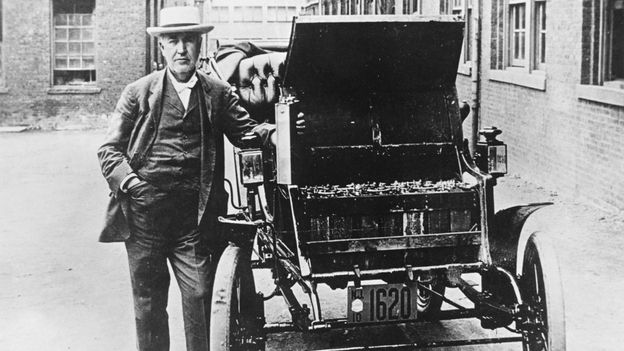One of the biggest challenges of renewable energy sources such as wind and solar is how unpredictable and intermittent they can be. With solar, for example, you have a surplus of energy produced during the daytime and summertime, but at night and in the winter months, the supply dwindles.
Conventional batteries, such as those based on lithium, can store energy in the short-term, but when they’re fully charged they have to release any excess or they could overheat and degrade. The nickel-iron battolyser, on the other hand remains stable when fully charged, at which point it can transition to making hydrogen instead.
"[Nickel-iron batteries] are resilient, being able to withstand undercharging and overcharging better than other batteries," says John Barton, a research associate at the School of Mechanical, Electrical and Manufacturing Engineering, Loughborough University in the UK, who also researches battolysers. "With hydrogen production, the battolyser adds multi-day and even inter-seasonal energy storage."
Besides creating hydrogen, nickel-iron batteries have other useful traits, first and foremost that they are unusually low-maintenance. They are extremely durable, as Edison proved in his early electric car, and some have been known to last upwards of 40 years. The metals needed to make the battery – nickel and iron – are also more common than, say, cobalt which is used to make conventional batteries.
This means the battolyser could have another possible role for renewable energy: helping it become more profitable.

 www.bbc.com
www.bbc.com
Conventional batteries, such as those based on lithium, can store energy in the short-term, but when they’re fully charged they have to release any excess or they could overheat and degrade. The nickel-iron battolyser, on the other hand remains stable when fully charged, at which point it can transition to making hydrogen instead.
"[Nickel-iron batteries] are resilient, being able to withstand undercharging and overcharging better than other batteries," says John Barton, a research associate at the School of Mechanical, Electrical and Manufacturing Engineering, Loughborough University in the UK, who also researches battolysers. "With hydrogen production, the battolyser adds multi-day and even inter-seasonal energy storage."
Besides creating hydrogen, nickel-iron batteries have other useful traits, first and foremost that they are unusually low-maintenance. They are extremely durable, as Edison proved in his early electric car, and some have been known to last upwards of 40 years. The metals needed to make the battery – nickel and iron – are also more common than, say, cobalt which is used to make conventional batteries.
This means the battolyser could have another possible role for renewable energy: helping it become more profitable.

The battery invented 120 years before its time
At the turn of the 20th Century, Thomas Edison invented a battery with the unusual quirk of producing hydrogen. Now, 120 years later, the battery is coming into its own.

